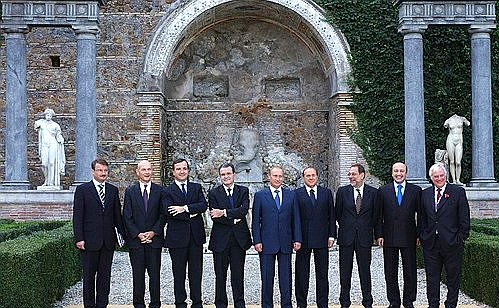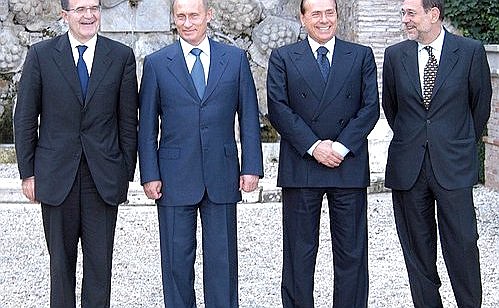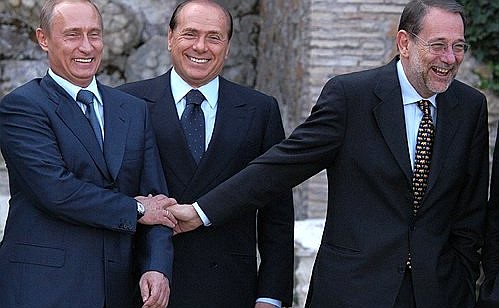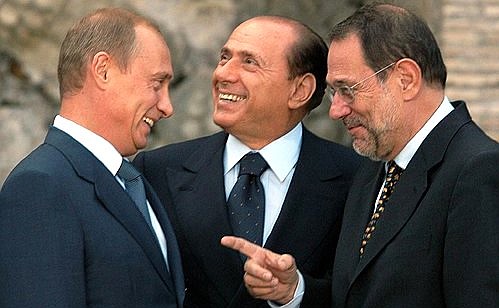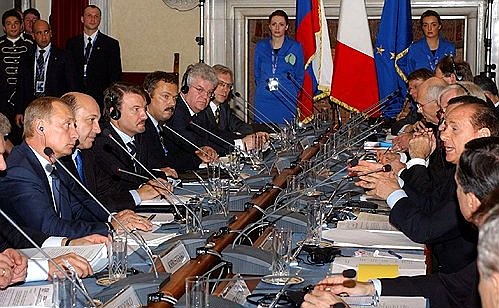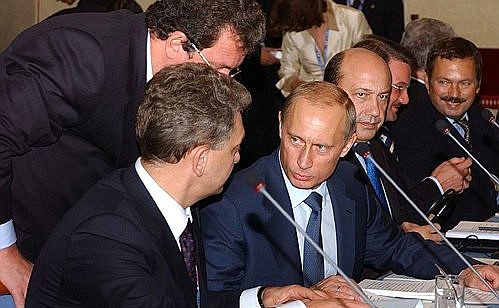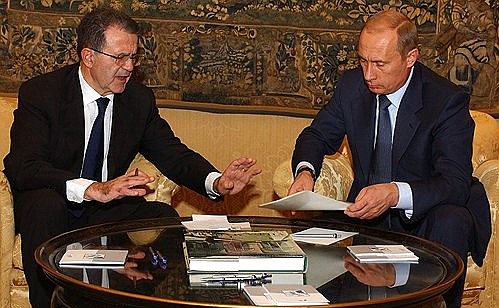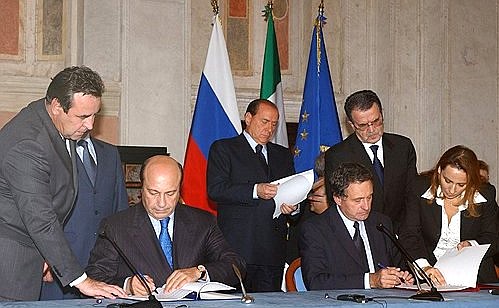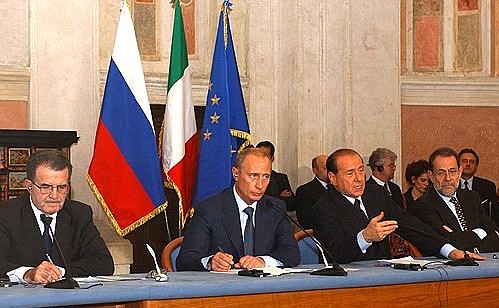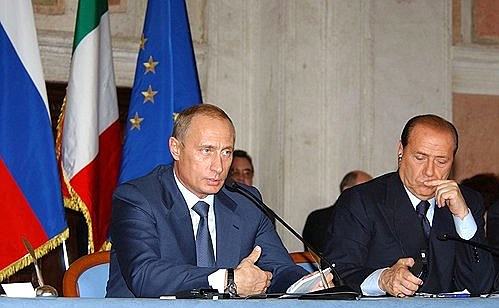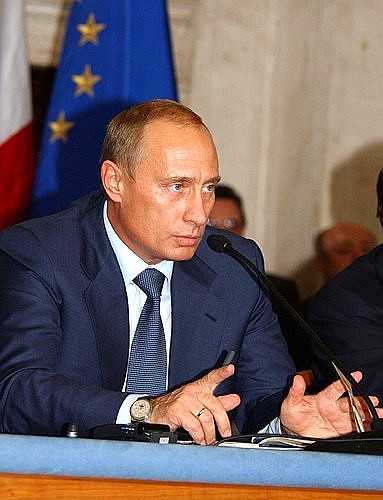The participants in the summit concentrated on the four common areas between Russia and the European Union: economics, external and internal security, the humanitarian sphere, which had been agreed upon in principle during the previous summit held in St Petersburg in May. The parties considered the report on the common European economic space presented by the High-Level Group and approved a concept for the formation of the CEES. The Russian and EU leaders agreed to continue the dialogue in this area with the aim of reaching tangible results at an early date.
The Russian and EU representatives discussed measures to enhance the effectiveness of institutional mechanisms for bilateral cooperation noting in this connection the importance of starting the work of the Permanent Partnership Council, including at the level of industrial ministries.
President Putin briefed his European counterparts on the political and economic reforms in Russia. The European Commission members spoke about the development of integration processes and the drafting of the EU Constitution.
Various aspects of the forthcoming expansion of the European Union, the prospects for mutual liberalisation of visa regulations, some technical issues of Kaliningrad transit and the timeframe for Russia’s possible accession into the World Trade Organisation were among other issues discussed.
Opinions were exchanged on relevant international problems, including the non-proliferation of weapons of mass destruction, the situation in Iraq and the Middle East.
From the results of the talks between Russian President Vladimir Putin, Italian Prime Minister Silvio Berlusconi, European Commission Chairman Romano Prodi and EU High Representative for the Common Foreign and Security Policy Javier Solana, a joint statement was adopted. The delegations signed an agreement on cooperation between the Russian Federation and the European Police Organisation (Europol) and a joint declaration on the strengthening of the dialogue and cooperation on political and security issues.
The parties agreed to extend the bilateral agreement on cooperation in science and technologies for another five years and took note of the fourth summary report on the Russia-EU energy dialogue.
After the summit Vladimir Putin, Silvio Berlusconi, Romano Prodi and Javier Solana gave a joint press conference.
The Russian leader praised the results of the talks which reaffirmed the mutual desire of Russia and European Union members to further promote an equal and mutually beneficial partnership.
For his part, the Italian Prime Minister described the documents signed at the Rome summit as a serious step towards expanding the Russia-EU dialogue with special emphasis on the visa issue. The Prime Minister described the existing mutual restrictions on crossing the borders as an anachronism and spoke in favour of an early liberalisation of visa regulations. Silvio Berlusconi lamented the fact that the six months of the Italian presidency of the EU government bodies is not enough time to settle the problem, but he stressed that during this time the Italian government has managed to give a good impetus to the process of simplifying visa procedures for some categories of citizens, notably students, young people, businessmen and cultural workers. The Italian Prime Minister believes that in the long term Russia and the European Union can abolish visas altogether.
